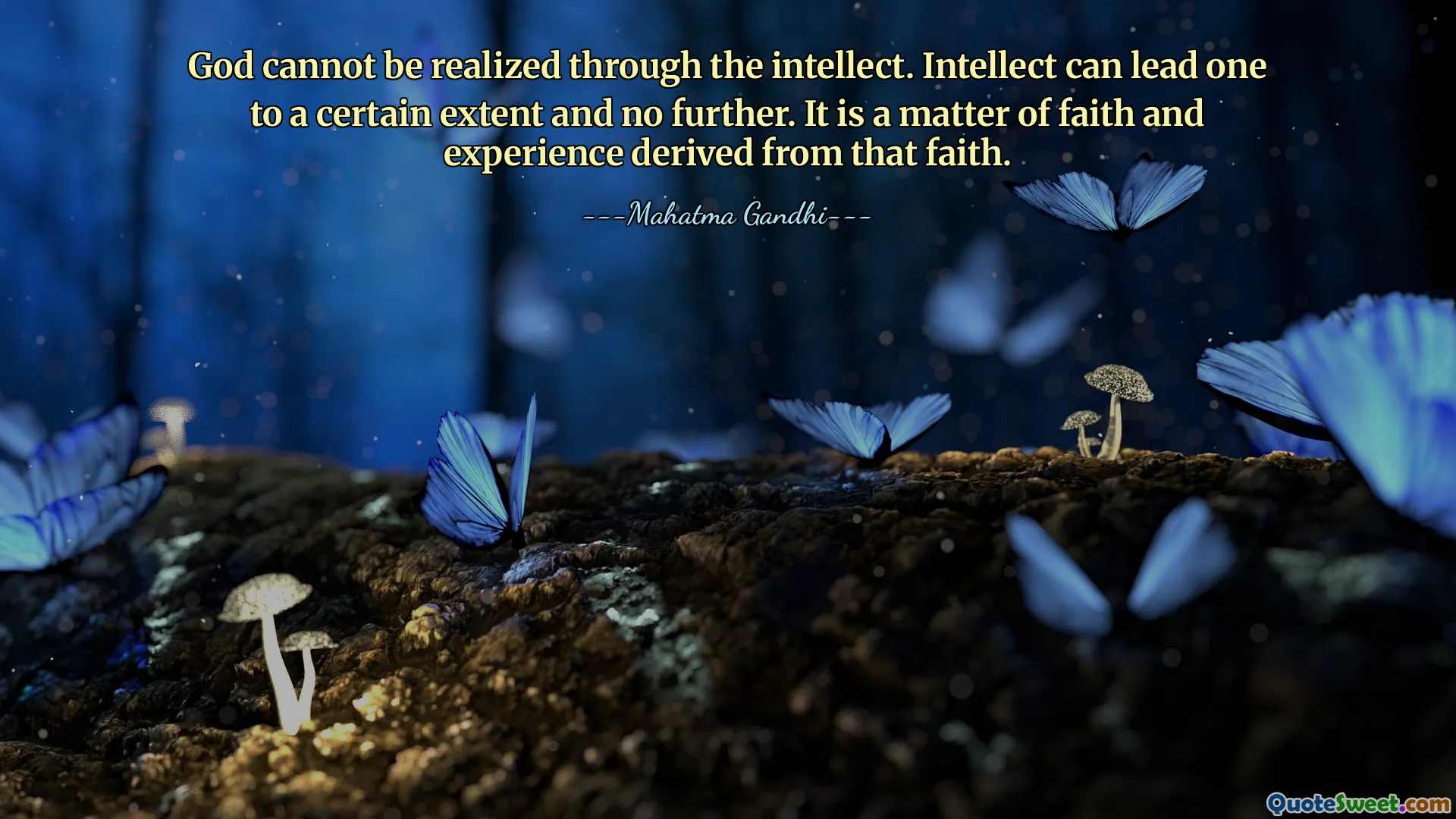
God cannot be realized through the intellect. Intellect can lead one to a certain extent and no further. It is a matter of faith and experience derived from that faith.
This quote encapsulates a profound truth about the relationship between reason and spirituality, a dichotomy that many have wrestled with throughout human history. It suggests a boundary where intellectual pursuit alone ceases to be effective in comprehending the divine or ultimate reality. The intellect, while immensely powerful in analyzing and understanding the material world, falls short when confronted with metaphysical or transcendental truths that are fundamentally experiential and subjective.
Faith here is not blind belief, but a form of trust and openness that allows one to move beyond the limitations of rational thought. The experience derived from this faith implies a transformative encounter that transcends mental constructs, hinting at something deeply personal and existential. This resonates with many religious and spiritual traditions where knowledge of the divine is often described as an inner awakening or realization that arises from devotion, grace, or direct experience rather than logical deduction.
Moreover, the quote reminds us of the complementary roles that intellect and faith play in human understanding—intellect can provide clarity, structure, and a foundation of knowledge, but true spiritual realization demands a leap beyond it. This leap could be seen as an embrace of mystery and uncertainty, acknowledging that not all aspects of reality are accessible or understandable through logic alone.
Ultimately, this perspective invites humility, suggesting that some truths are beyond our conceptual grasp and can only be approached through a heartfelt journey of faith and lived experience. It also encourages seekers to balance their intellectual endeavors with openness to experience, pointing to a richer, more holistic approach to the quest for meaning and the divine.







